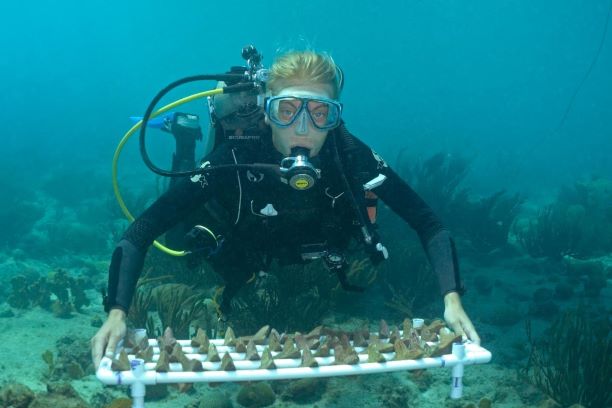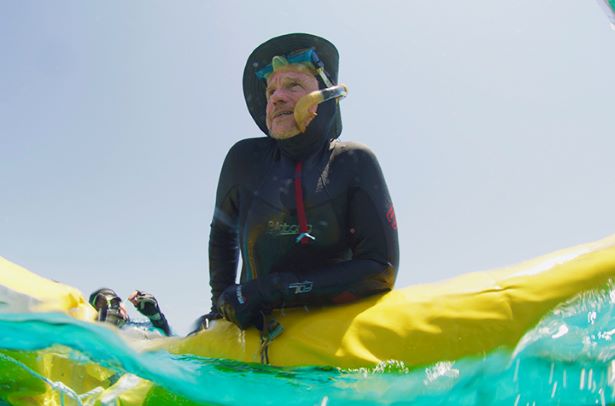

Diver with a tray of Seeding Units that will be outplanted onto a reef
The great barrier reef has become the site of the largest restorative effort ever on it, using millions of coral spawns has begun off the coast of Cairns, Queensland. This larval restoration project wants to repair the reproductive life cycle of Corals and provide breeding populations to the damaged reefs in Vlasoff and Arlington bay areas.


The project is spearheaded by Southern Cross University’s (SCU) Professor Peter Harrison, whose research in coral reproduction and larvae has rapidly advanced the potential for large-scale reef recovery. Professor Harrison said that this is the most ambitious effort to regenerate a reef to date.
“This is the first time that the entire process of large-scale larval rearing and settlement will be undertaken directly on reefs on the Great Barrier Reef,” Professor Harrison said. “Our team will be restoring hundreds of square meters with the goal of getting to square kilometers in the future, a scale not attempted previously,” he quips.
The project is a collaboration between local tourism and other reef-based industries. Researchers Peter Harrison (SCU), Katie Chartrand (James Cook University) and David Suggett (University of Technology Sydney), the Great Barrier Reef Marine Park Authority, Queensland Parks & Wildlife Service, as well as others, are its key industry partners.
The team will harvest millions of coral eggs and sperm during the ongoing spawning season to grow new coral larvae, which will be released back onto heavily degraded parts of the northern Great Barrier Reef.
Large swaths of the 2,300-kilometre (1,400-mile) of Coral reef have been killed by rising sea temperatures linked to climate change, leaving behind skeletal remains in a process known as coral bleaching. The northern reaches of the reef suffered an unprecedented two successive years of severe bleaching in 2016 and 2017, raising fears that it may have suffered irreparable damage.
The Reef is the world’s largest natural living structure. Covering over 1,429 miles of the Queensland coast, and is home to over a thousand different types of marine life: 1400 types of hard coral, one third of the world’s soft coral, 1,625 species of fish, over 3000 species of molluscs, 630 types of starfish/sea urchins, 14 species of sea snakes, 215 types of birds, 133 different types of sharks and rays, 30 species of whales and dolphins, six out of seven species of marine turtles, and many species still undiscovered.
“The Reef supports a huge variety of marine biodiversity and an estimated 69,000 Australian jobs, and provides $7 billion to the Australian economy every year,” reads a report from the Australian Climate Council.
Due to the colorful marine life, the Reef is also one of the most popular tourist sites for scuba divers visiting Australia.
Picture credit: SCU, Phys.org
The Indian Federation of Green Energy (IFGE) and the Embassy of Nepal have jointly organized…
Saudi Arabia’s Forward7 Initiative—formerly known as the Clean Fuel Solutions for Cooking Initiative—has collaborated with…
In a significant move toward advancing green energy and industrial growth in the state, Himachal…
Golabl chemical conglomerate BASF has announced that its now offering the world’s first biomass-balanced polyethersulfone…
In a crucial stint to bolster the biogas sector and sustainable dairying in the country,…
TotalEnergies SE has received approval to proceed with its Middlebrook solar and battery project in…